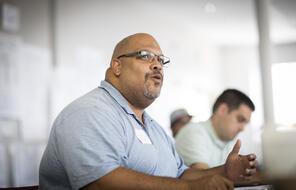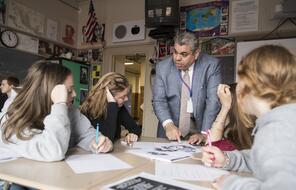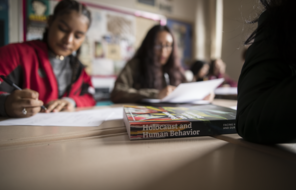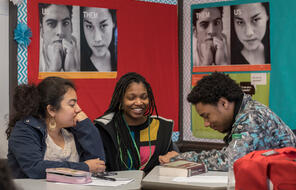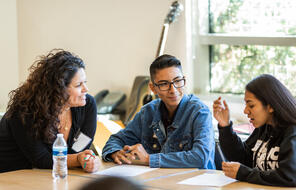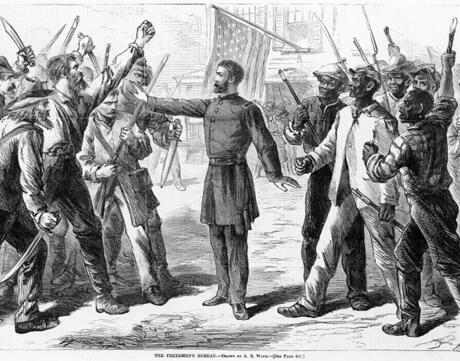
Why Teach Reconstruction Today?
Over the last year, we have seen an explosion of debate within the public sphere about how to teach young people about the past. From antebellum slavery to contemporary manifestations of racism and other forms of injustice, communities remain divided on the question of whether and how to introduce these dimensions of history and contemporary life into the classroom. One way to deliver meaningful instruction in the midst of these debates is to teach about the Reconstruction Era—the period that immediately followed the Civil War in which formerly enslaved people pursued meaningful freedom and equal citizenship. This period was transformative, in part, because these newly-freed people and their allies across the U.S. South helped to make profound changes to democratic institutions. During this period, African Americans achieved significant, hard-won gains that students are seldom taught about, only to be undercut by a countervailing host of regressive measures implemented by those invested in maintaining the racial and economic status quo. This period of unprecedented possibility and hope would become a time of immense injustice and violence, and the roles that actors large and small played in those events are instructive for our times.
We recently supported our partners at the Zinn Education Project in an advisory capacity with their Teach Reconstruction Report (January 2022). A core component of their Teach Reconstruction Campaign, the report offers a state-by-state analysis of the ways in which Reconstruction is addressed—or not—around the country with an emphasis on the widespread erasure of the Black freedom struggle from K-12 curricula.
Since 2014, we have helped educators adapt our curriculum on the Reconstruction Era to their classrooms and students. Our experience supporting educators on this topic has strengthened our belief that students of Reconstruction gain a host of fundamental lessons about American history and the roles they can play in the future of the nation. Here are three of those core lessons:
Interracial democracy that includes widespread Black political leadership is indeed possible
Many people are unaware that with new freedoms and Constitutional amendments, the United States saw an outpouring of Black political leadership in the aftermath of the Civil War. In communities across the South, Black people held elected office and set profound changes to their communities into motion. This basic fact is unknown to many modern Americans, perhaps in part because the American history taught in schools so often skips over this significant period, effectively advancing an understanding of the past that obscures both what has been and what could potentially be again.
Present-day barriers to interracial democracy were never inevitable
The history of Reconstruction reveals that there were alternative paths that the nation could have taken after the Civil War that may have landed us in a profoundly different present characterized by a much more robust interracial democracy. A typical account of Black history in America might highlight a linear story of gradual improvements from enslavement to emancipation to the Jim Crow Era to the Civil Rights Movement to the Obama presidency. Viewing history in this light might suggest that change can only ever come slowly but the sudden wave of Black political leadership during Reconstruction disrupts these assumptions and demands that we understand that the present-day problems we face did not have to develop and are not necessarily unshakable.
Individual choices really do matter and make history
Studying the history of Reconstruction reveals that American history is lined with recurring cycles of social progress and backlash in which everyday people have surmounted immense barriers to drive powerful change. Though some people might look at this chapter of American history as one that reveals the impossibility of fundamental and lasting change, our view at Facing History is that our history simply reveals that we must remain ever vigilant in the fight against injustice. Rather than focusing on the possibility of our gains being reversed, we ought to focus on learning from our past and from the courageous and oft-overlooked gains made by newly-freed people in the Reconstruction era for example. If we can learn from their strategies and successes as well as the violent and often devastating resistance they faced, we can better hone our approach to the collective action upon which democracy depends.


